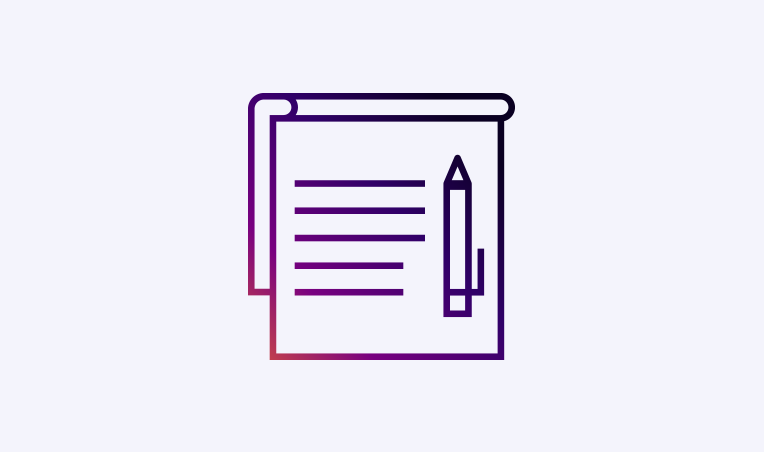Pantheon Hero Spotlight: Sandy Edwards, COO of Data Driven Labs
Image

Who is training the next generation of coders and web developers?
Some kids are learning to code in school. That’s great. But it’s not a part of the core curriculum yet. Kids need to know coding and developing, but more than that, they need to enjoy doing both. They need to see how these skills are relevant to their lives, right now and in the future.
Sandy Edwards is helping make a difference. She champions the WordPress KidsCamps organization, a full-day retreat where kids learn how to create their own blogs, and more. Thanks to Sandy's adoption of the KidsCamp model, it has spread from its origins in Ireland all the way to Costa Rica and Canada.
In addition to her work with KidsCamp, Sandy is a valued member of the WordPress community and is always looking for ways to give back. Pantheon is sponsoring Sandy's trip to WordCamp NYC this month, where she’s presenting a session called, “What to Do Once You Launch a New Website.”
Thanks to her amazing contributions to the community, Sandy was a natural fit for the Pantheon Heroes Program. We sat down with Sandy to find out how she got interested in WordPress, her plans for KidsCamp, and more.
How did you get involved with WordPress?
I worked for an agency six or seven years ago that utilized WordPress for their sites. As a project manager there, I was able to get familiar with the software, and also get involved with the community. I went to my first WordCamp seven years ago. After that, I was hooked. I just really enjoy both the software and the community.
You have a unique way of contributing to the community: Organizing and running KidsCamps across the country. What’s your mission statement for these camps?
It’s basically an opportunity for children to learn how to use WordPress, whether or not they have experience with it. We start out with an art activity that helps them figure out who they are and what they want to blog about. Then we do a scavenger hunt together and take pictures to document their day. Finally, we have them take all of that and convert it into a blog on wordpress.org.
How old are these kids?
We typically recommend ages 7 to 14 but sometimes we'll accept younger kids: If they can read and type, they can participate. On the older end, it really just comes down to the local community and what they feel is going to fit their camp best. The Raleigh camp, for example, that goes to 17. But in Miami we cut off at 12 because the 13-year-olds have a teen program that we're testing out there. We’re hoping to have our curriculum developed over the next two years, and start rolling out that teen program across the country, as well.
How many KidsCamps are there per year?
Right now, about 10% of WordCamps are running a KidsCamp. It's still a fairly low number. But we're getting the word out, and we're constantly doing outreach about what the program is, and how easy it is to start a KidsCamp. We’re slowly starting to see more and more camps pick up on that.
This year, we have a lot of return camps too, which is great! Costa Rica is having their third one, which is really awesome to see. We also have one of the Canadian camps in their second or third year.
Locally, we’re more established. Miami just had their sixth year, and Orlando is about to have their fifth.
That’s fantastic.
It's a lot of fun. You know, it's so much more than just the camp. It's about getting kids involved in the community. For example, there are these girls in Michigan that have grown up in the community. So, even though they may or may not have attended KidsCamps, they've been totally adopted into the community, and now they're getting a chance to speak at WordCamp U.S. about their involvement.
It’s so great to see these kids grow, and then blossom and speak and give back. I think we're going to see a shift over the next few years, with more and more teen speakers talking about their experiences within the community itself.
We know these camps are great for the kids, but I think they’re great for the WordPress community as a whole. Do you think so?
We have found that kids bring a unique perspective into conversations. This will be our first WordCamp U.S. that has a KidsCamp alongside it. I'm really interested to see how the kids contribute. They’re going to come into Contributor Day in the morning, get the whole spiel. Then they're going to go and do their camp and get a WordPress 101-type class. Then they’ll come back into Contributor Day, and if they want to participate and sit down with the team and see how they can contribute, they're going to have the opportunity to do so.
I’m excited to see how we can plug these kids in, get them involved in furthering a project. I think we're going to see a lot of kids offering up unique ideas to reach their demographic.
I think we're also going to see a lot of kids that code. We have seen a few kids who really know code, if their school system has a focus on it. I think we're going to see a lot more of that. One of the biggest benefits that the kids get from all of this is increasing their test scores. Because the more you're reading, and the more you're writing, the better your scores are. And when you're learning to code, your math scores go up as well. So this is something that's been tested over the past few years through different educational circles. And it's really interesting to see all of this come to fruition through a one-day program.
Absolutely. It’s great that not only is coding good for kids in and of itself, it also helps them practice these other skills, too. Switching gears a little: Can you give us a preview of the presentation you're doing at WordCamp NYC?
Sure! My presentation is about what to do once you launch your website. We’ll talk about web operations, the proper systems to use post-launch to make sure you're keeping things maintained and up-to-date. We’ll wade into SEO a little, along with that. From there, we'll briefly touch on PPC [pay-per-click advertising]. Just a 20,000-foot overview.
But basically, it’s collecting all those little things that you need to do to make sure that you stay healthy as an online business. It’s very much, “We launched the website! Pop the champagne!... now what?”
What do you find people get wrong post-launch?
Not updating. That’s the biggest thing. Updating your website, plugins, themes, and especially the core. I have inherited so many sites that are ridiculously out of date. And that's just not okay.
Why do you think people let their websites get in that state in the first place?
Sometimes it's lack of knowledge, which leads to fear: They're afraid if they do something wrong, they’ll break the site. Since they don't know how to fix it if it breaks, and they don't want to pay someone to fix it, it’s easier to just not touch it. But that causes a whole host of problems.
There's still the mindset that a website is a set-it-and-forget-it kind of thing. And that's just not the case anymore. The web is ever-changing and fluid. You need to stay up to date. So my hope is that we will be able to help folks understand that launching a WordPress site is not the end of the process.


